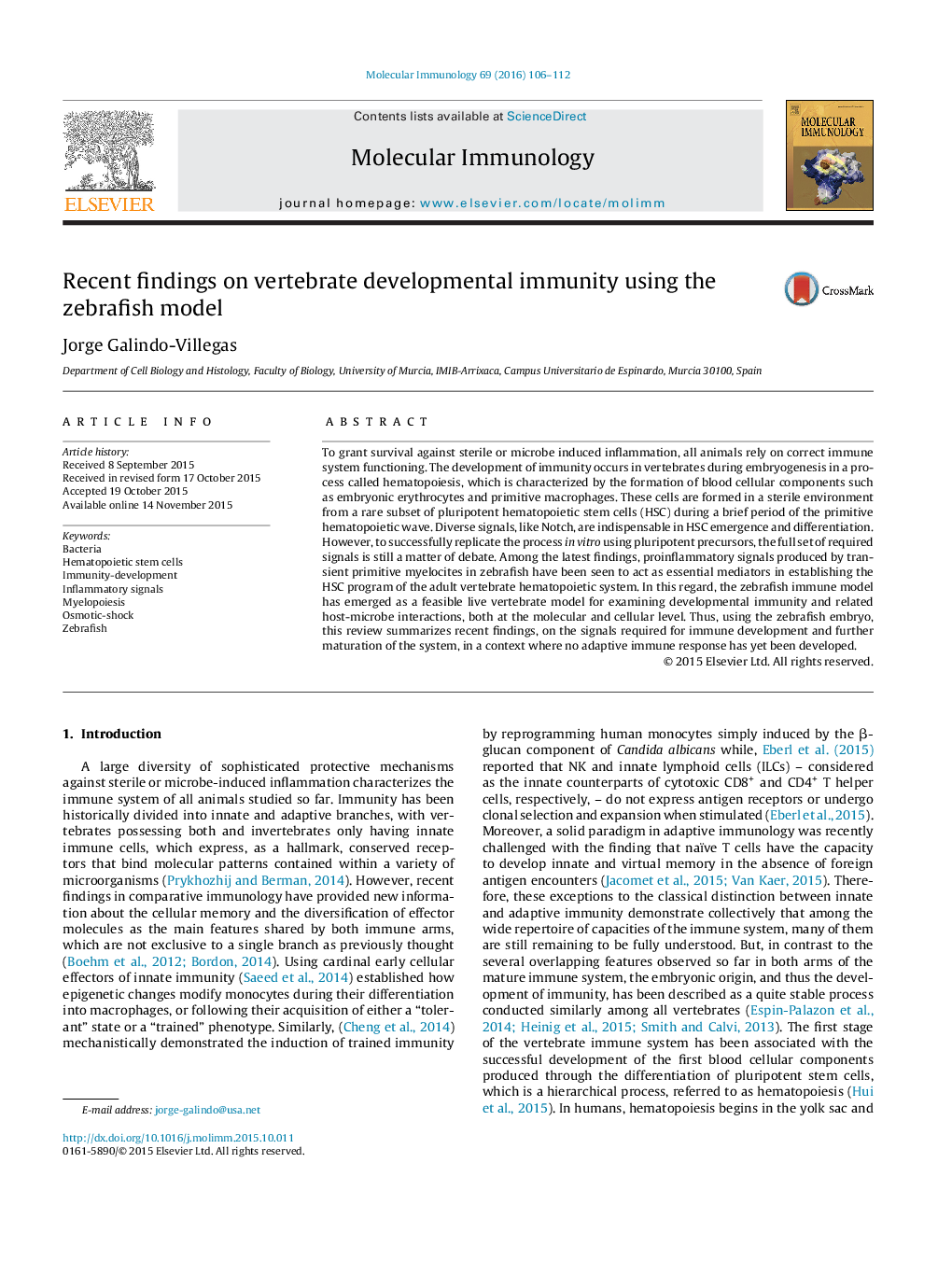| Article ID | Journal | Published Year | Pages | File Type |
|---|---|---|---|---|
| 2830589 | Molecular Immunology | 2016 | 7 Pages |
•Development of immunity occurs in vertebrates during embryogenesis.•Primitive and definitive hematopoietic waves of differentiation have been identified.•Naïve myelocytes release the essential proinflammatory signals required for the fate of HSCs.•At birth, environmental stimuli prime myelocytes by promoting a constitutive homeostatic inflammation.•Zebrafish is recognized as an excellent model to study vertebrate immunity.
To grant survival against sterile or microbe induced inflammation, all animals rely on correct immune system functioning. The development of immunity occurs in vertebrates during embryogenesis in a process called hematopoiesis, which is characterized by the formation of blood cellular components such as embryonic erythrocytes and primitive macrophages. These cells are formed in a sterile environment from a rare subset of pluripotent hematopoietic stem cells (HSC) during a brief period of the primitive hematopoietic wave. Diverse signals, like Notch, are indispensable in HSC emergence and differentiation. However, to successfully replicate the process in vitro using pluripotent precursors, the full set of required signals is still a matter of debate. Among the latest findings, proinflammatory signals produced by transient primitive myelocites in zebrafish have been seen to act as essential mediators in establishing the HSC program of the adult vertebrate hematopoietic system. In this regard, the zebrafish immune model has emerged as a feasible live vertebrate model for examining developmental immunity and related host-microbe interactions, both at the molecular and cellular level. Thus, using the zebrafish embryo, this review summarizes recent findings, on the signals required for immune development and further maturation of the system, in a context where no adaptive immune response has yet been developed.
